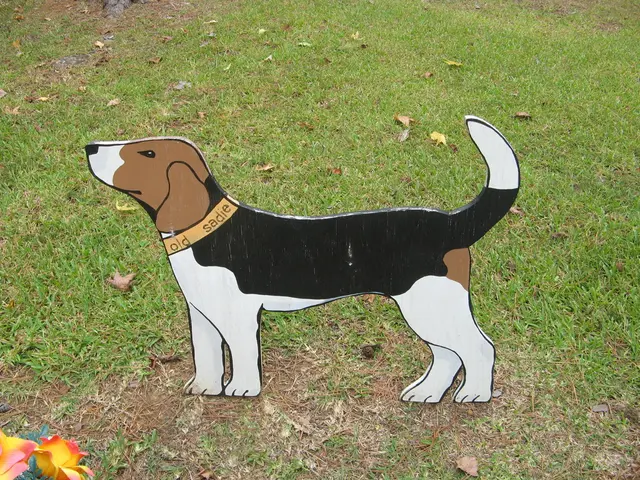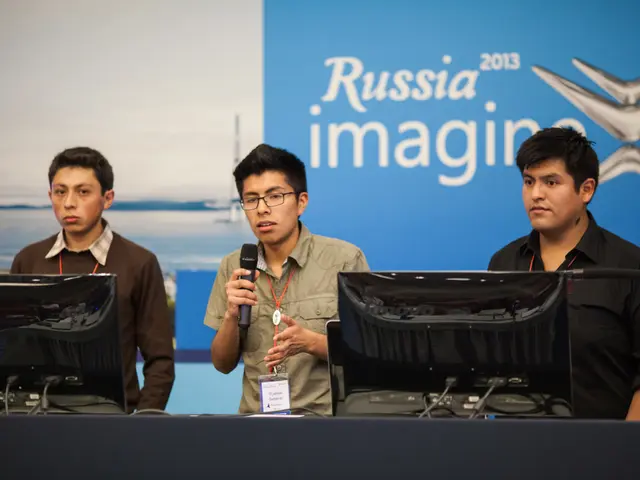Portuguese Explorer and Airman, Gago Coutinho
Gago Coutinho, a Portuguese naval officer and aviator, made history in 1922 when he participated in the first aerial crossing of the South Atlantic Ocean. Born on February 17, 1869, in Santa Maria de Belem, a part of Lisbon, Portugal, Coutinho's life was marked by innovation and determination.
Born into a family that was not wealthy, Coutinho was unable to pursue his dream of studying engineering in Germany. However, he completed his high school education and joined the Portuguese Navy at a low rank after studying at a naval school for a year.
Coutinho's interest in aviation was sparked during his time in Africa from 1907 to 1911, where he met Artur de Sacadura Cabral, a skilled pilot. Together, they would go on to achieve the unthinkable.
In 1922, Coutinho and Sacadura Cabral embarked on a historic journey, crossing the South Atlantic Ocean in three Fairey III seaplanes named “Lusitânia,” “Portugal,” and “Santa Cruz.” Equipped with floats to handle emergency ocean landings, the aircraft were pioneering vessels of a new era.
The journey was fraught with difficulties, including mechanical failures and adverse weather. The pilots had to make multiple forced landings at sea, demonstrating remarkable resilience and seamanship. Coutinho's use of his modified sextant allowed the crew to determine their precise location over the Atlantic, correcting for drift and ensuring they remained on course—an unprecedented achievement at the time.
On June 17, 1922, the pair arrived in Rio de Janeiro, completing the first nonstop aerial crossing of the South Atlantic and earning international acclaim. This historic journey symbolised a major milestone in both Portuguese and global aviation history, demonstrating the feasibility of long-distance aerial navigation and the potential for future international air travel.
Coutinho's most significant technical contribution was the development and practical application of astronomical navigation instruments for aviation. His innovation made the South Atlantic crossing possible and influenced the future of long-range air navigation.
Coutinho's pioneering use of celestial navigation in aviation laid the groundwork for the development of modern air navigation systems. His methods were quickly adopted and further refined, contributing to the safety and reliability of long-distance flights.
Despite financial constraints, Coutinho's contributions not only marked a turning point in aviation history but also established Portugal’s prominence in early 20th-century aeronautical achievement. Coutinho died on February 18, 1959, from a kidney problem at the age of 90, and there are now many monuments in Portugal to commemorate him.
References:
[1] "Gago Coutinho." (n.d.). In Encyclopædia Britannica. https://www.britannica.com/biography/Carlos-Viegas-Gago-Coutinho
[2] "Gago Coutinho." (n.d.). In Portuguese Wikipedia. https://pt.wikipedia.org/wiki/Gago_Coutinho
[3] Silva, A. R. R., Barata, J. M. M., & Neves, F. M. S. P. (2016). Gago Coutinho and the Scientific Navigation. Journal of Aerospace Engineering, 9(3), 1-10. https://www.scirp.org/journal/paperinformation.aspx?paperid=70889
[4] "First Aerial Crossing of the South Atlantic." (n.d.). In Aviation History Online. https://www.aviation-history.com/first-aerial-crossing-of-the-south-atlantic/
[5] "Gago Coutinho." (n.d.). In Numismatic Guaranty Corporation. https://www.ngccoin.com/coin-prices/portugal/gago-coutinho-50-escudo-1982-proof-70-ultra-cameo
- Aviation pioneers, such as Gago Coutinho, have significantly impacted the industry, pushing the boundaries of technology in transportation and paving the way for future advancements, as demonstrated by his development of astronomical navigation instruments during the 20th century.
- Initially facing financial hurdles that prevented him from pursuing his dreams, Coutinho's relentless determination and innovative spirit transformed Portugal's role in the aviation industry, making the country a key player in the early 20th-century aeronautical achievements.
- The successful first aerial crossing of the South Atlantic Ocean, accomplished by Gago Coutinho and others, not only solidified their place in aviation history but also demonstrated the potential for the aviation industry to revolutionize finance, sports, and international travel through long-distance air navigation.




